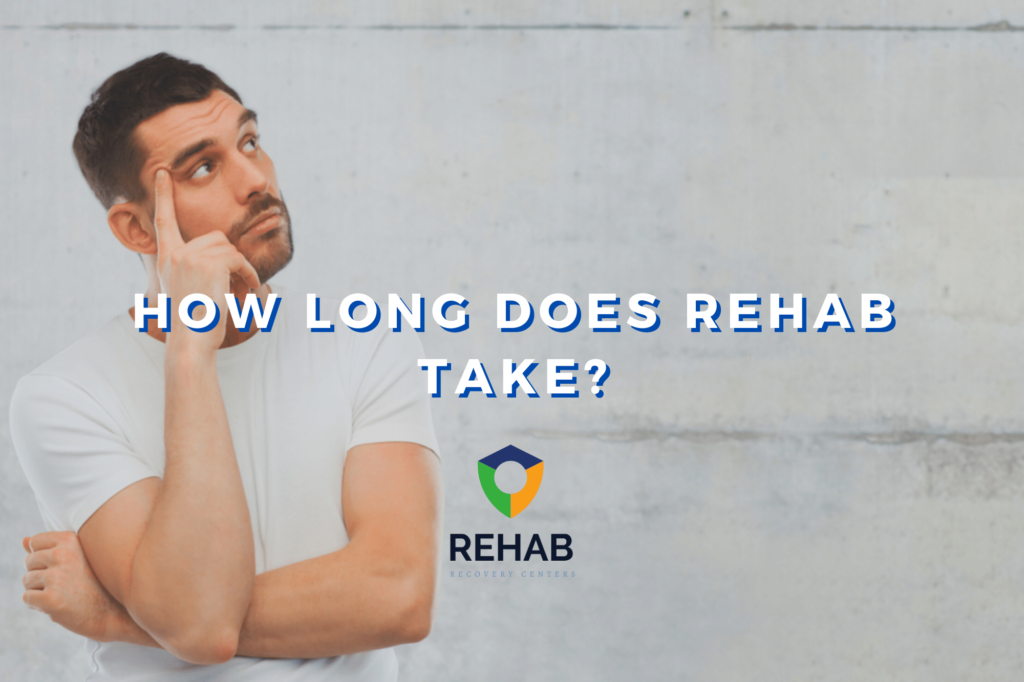Table of Contents
Of the estimated 22.7 million people in the US who have struggled with substance abuse, only about 2.5 million have sought treatment. While some of those people may have found their path to recovery on their own, seeking treatment is often a necessary step towards sobriety.
Why do so few people enter into rehab programs?
Some people may perceive rehab to be an unattainable or disruptive treatment process. Many express the worry that rehab will take too long and that they can’t afford to be away from their lives for such a long amount of time.
So, how long does rehab take? Read on to find out more. You just might find that rehab is more flexible than you first thought.
What Happens During a Rehab Program?
Many of us use the word “rehab” without knowing what goes into that process. Rehab is often a holistic approach to addiction treatment. Throughout the rehab timeline, you’ll go through many different styles of treatment to help you get and stay sober.
In the beginning, you will receive a medical evaluation that determines your best detox program. Detoxing is the process of ridding your body of the active chemicals from the substance(s) you previously consumed. This can take anywhere from two days to two weeks.
You may also go through further medical treatment that involves prescription medication. However, the majority of rehab is spent in both group and individual therapy sessions.
The reason for this is that addiction is rarely an isolated issue. Many of our clients have suffered from trauma or mental illness, and the substance they once used became a coping mechanism. In your therapy sessions, you will learn more about these other struggles and healthier coping mechanisms that will serve you once your rehab process is over.
How Long Does Rehab Take?
The truth is that addiction treatment is not one-size-fits-all. The amount of time you’ll spend in rehab, as well as the type of treatment you’ll receive, depends on the nature of your addiction.
Throughout the course of your substance abuse, your brain chemistry is altered to create dependency on the substance. One of the first steps you’ll go through in rehab is an assessment of the steps that are necessary for you to take in order to undo those chemical changes. Let’s take a look at some of the standard programs you can expect to find.
30-Day Treatment Programs
30-day treatment programs tend to be the shortest recommended programs available at rehab centers. During this time, you will receive medical assistance while going through physical withdrawal. This will also give you a safe space to begin discussing coping mechanisms, set realistic goals, and establish an aftercare plan.
Many insurance programs will cover 30-day treatment, making it an attainable process for more of our clients.
60-Day Treatment Programs
60-day treatment programs allow for a more thorough detox. They also tend to involve more rigorous therapy sessions during which you can discuss anything from family history, previous trauma, and the ways that substance abuse has affected your relationships. This more thorough look at your life will give you a much better understanding of how your dependence on a substance came to be.
You will also have time to start actively working on positive coping mechanisms. Practicing these coping mechanisms in a safe, monitored environment will make it easier to form habits that you can take with you after your program is over.
90-Day Treatment Programs
90-day treatment programs may seem more intimidating but it’s important to note that they tend to have the highest success rates. These long-term programs tend to be the most likely to include things like group therapy sessions, which many clients greatly enjoy. This gives you the opportunity to connect with others who can empathize with your position and strengthen your resolve to turn the page.
During 90-day treatment programs, you will have access to in-depth cognitive behavioral therapy. Once again, you will cover things like trauma and other factors that may have contributed to your substance abuse. You will also go over potential triggers and practice new ways to respond to situations that previously prompted you to turn to a substance.
Ongoing Out-Patient Programs
It is important that we remember that addiction is not unlike a chronic disease. When we seek treatment, we find a greater rate of success, but that doesn’t mean that relapse isn’t possible.
Many individuals struggle with the idea of relapsing, viewing it as a failure of treatment or of their own will to recover. The truth is that an estimated 40-60% of people who have struggled with substance abuse once will relapse in the future. This is not a sign that all hope is lost but rather a sign that ongoing treatment is a useful tool.
During your treatment program at a rehab center, you will likely discuss an aftercare plan. Ideally, this will include a support or accountability group you can continue to visit with.
These groups come in all shapes and sizes, ranging from health-based to faith-based. Free resources are abundant and many of these groups offer a certain level of flexibility. You’re certain to find an aftercare program that is right for you!
Entering a Rehab Center Is a Sign of Strength
We are often asked, how long does rehab take? However, the more important question is, am I ready to take this first step to reclaim the time that was already stolen from me? Remember, asking for help is always a sign of strength.
To find out more about addiction treatment, contact us today. We’re here to help!
Get Help Today
Don’t go through the process of recovery alone. There are people who can help you with the struggle you’re facing. Get in touch with one today.


